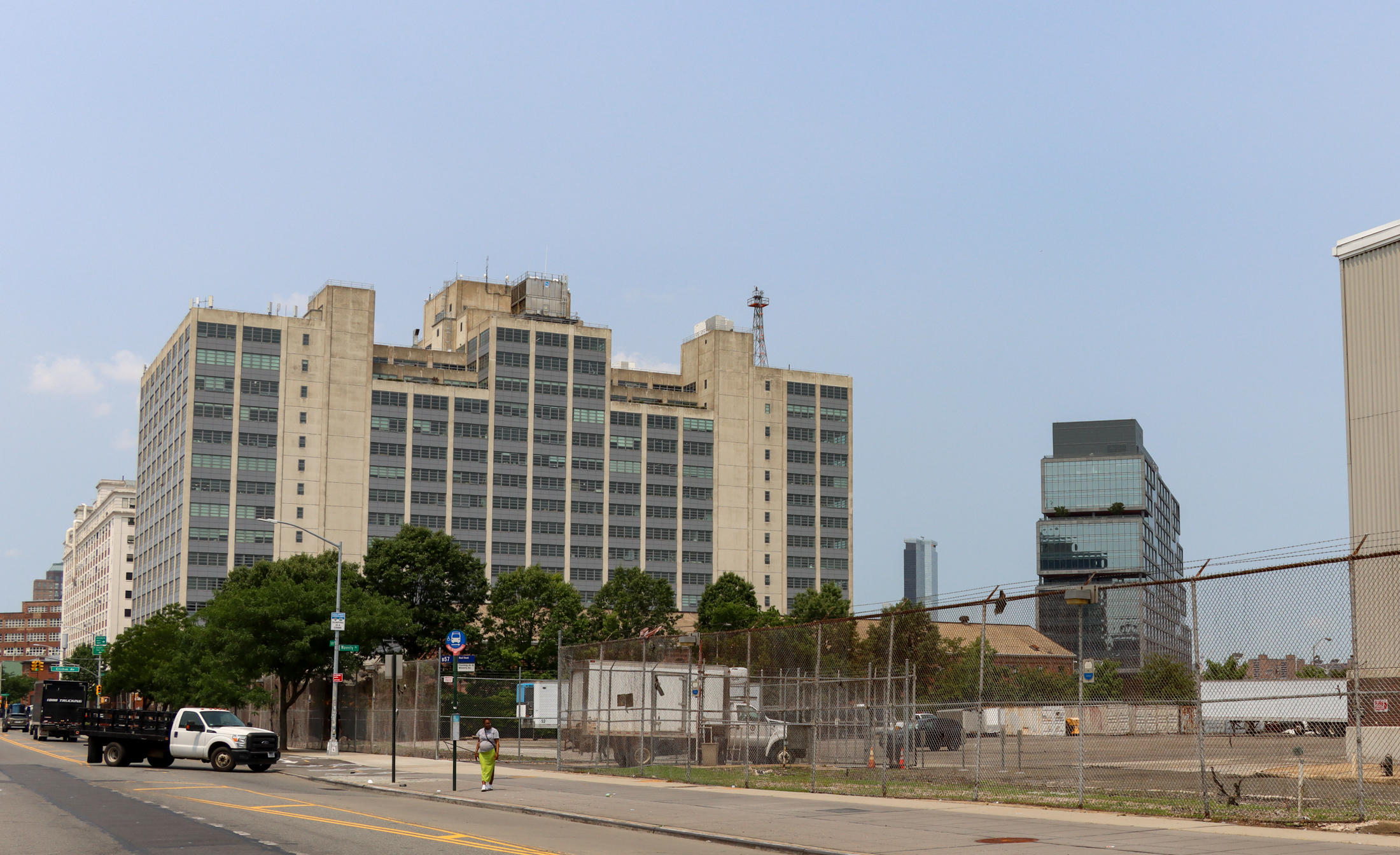111 Monroe Street: Let's Do the Time Warp Again
Remember those days of single-digit down payments for low-income buyers? Well, they’re back! According to a Real Deal article this week, the 29-unit development at 111 Monroe Street (which we’ve been tracking since its infancy under its other address, 1142 Bedford Avenue) has been approved for FHA loans, meaning that “qualified” buyers can buy a…


Remember those days of single-digit down payments for low-income buyers? Well, they’re back! According to a Real Deal article this week, the 29-unit development at 111 Monroe Street (which we’ve been tracking since its infancy under its other address, 1142 Bedford Avenue) has been approved for FHA loans, meaning that “qualified” buyers can buy a property with as little as 3 percent down. (At 111 Monroe, the minimum down payment will be 3.5 percent.) This sounds like a smart move for the developer but isn’t this how we got into the current mess? Check out this verbiage from FHAinfo.com:
The main advantage to a FHA home loan is that the credit criteria for a first time borrower are not as strict as Conventional Loans sold to Fannie Mae (FNMA) or Freddie Mac (FHLMC). Someone who may have had a few credit problems or no traditional credit should not have a problem obtaining FHA financing…FHA loans may may require less income to qualify as they will exceed the Conventional debt ratios.
Is this nuts or are we missing something?
111 Monroe Street Banks on FHA Approval [TRD]
1142 Bedford Avenue Nearing Completion [Brownstoner] GMAP
Development Watch: 1142 Bedford Avenue [Brownstoner]
Development Watch: Halfway There at 1142 Bedford [Brownstoner]
New Development: 1142 Bedford Avenue [Brownstoner]





Amen, Petebklyn.
Chrishavens, all the things you mention are still happening. People with reasonable credit scores (750 plus) and less than 20 percent down can still buy houses, and ARMs are still being given out. ARMs is all IMG does, for example.
Difference is bad credit scores, no doc, subprime ARMs, etc., is no longer happening. Also PMI is required and sometimes hard to get.
I’ve never known (as a buyer) my lawyer checking out my mortgage docs or my ability to pay mortgage. Just contract to purchase and title,etc.
and HowRealnyc – not only buyer signed the loan docs but the lender, mortgage broker did also. And they are the ones with more experience,expertise, analysts, backrougnd , etcand should have known better. But they are the group – along with the Lehman et al who pushed hard for the dereg and derivatives that were bundled and sold to others, insured by others – -all with large staff of experts, ecomonists,risk analysts that sat at their tables and signed and signed and signed with each other that got the country into this mess.
Don’t be putting the blame on working folks who just wanted a home and were exploited, misled,and marketed to by these scumbags (and Lehman, Countrywide, etc were the predators).
FHA loans also have another approx 6 percent in closing fees above and beyond that 3% down that are either paid outright at closing, can be borrowed from a family member, or in the past could be rolled into the loan.
“The former (post-1980s FHA loans, Nehemiah housing, etc.) have had low rates of default, even during the last year or two.”
The Nehemiah project, for one, has been VERY successful in building stable, well-kept homes across large swaths of previously undeveloped land across East New York.
tonewlots, very interesting. What is CRA? Where I can I read more about what you have posted here?
Howrealnyc, it’s well established that subprime loans caused the crisis, and many were predatory lending. Only NY state requires an attorney, and even in New York, the attorneys were often recommended by the agent or broker.
“except FHA loans used to be a tiny percentage of total origination”
Not all FHA loans are 3 percent down. You can put down as much as you want, as with any loan. They’re just insured by the FHA, that’s all.
Only if you want the real estate market to inprove will you support more relaxed lending that the current uptight mess. While crazy to go back to 2005 lending FL and NV style, without accepting reasonable credit scores, less than 20% down and doing ARMs, we won’t have a real estate market. Count on it.
The only one responsible is the one signing… (unless he/she was completely lied to..) and their attorney who sat there and had his/her client sign everything.
Um, no, as gomuppets mentioned, this isn’t what got us into this mess. There is a difference between responsible lending to subprime borrowers and predatory lending. The former (post-1980s FHA loans, Nehemiah housing, etc.) have had low rates of default, even during the last year or two. The latter, exotic mortgages marketed by non-CRA-regulated mortgage companies, are largely the proximate cause of the crisis.
Past government programs have a lot to account for: designing public housing to fail, actively encouraging discrimination in the private housing market for decades, and enabling massive fraud in the early 1970s. So there’s plenty of reasons to be vigilant about any new wave of FHA lending. But if you’re looking to blame the government for the subprime crisis, blame it for deregulation and its misplaced trust in the private market.